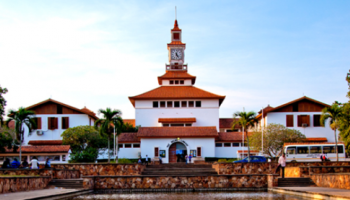OVERVIEW
Food & Clothing Science is an interdisciplinary discipline in Family and Consumer Science; combining aspects of natural and social science. It focuses on the relationship between individuals, families and communities, and the environment in which they live.
Food Science draws on biology, psychology, sociology, education, economics, chemistry, physics, mathematics and engineering to study food & nutrition, principles of food, food hygiene and safety, nutritional assessment methods, sensory evaluation of foods and life cycle nutrition and meal management.
Clothing Science examines both the physical [fabric properties, product design, processes, performance & maintenance] and social aspects of textiles and apparel [theoretical perspectives, socio-cultural contexts, manufacturing, marketing & distribution].
Professionals with Food and Clothing background are engaged in establishing quality assurance systems, process & product design and research on family & consumer behaviour for the betterment of families and society
AIMS AND OBJECTIVES
At the end of the programme, students are expected to :
• Acquire an in-depth knowledge of Food and Clothing Science and the application of this specialisation within current Family and Consumer practice or situations.
• Demonstrate an understanding of procedures needed to promote and maintain health, nutrition and safety in a given intervention.
• Demonstrate a comprehensive and systematic grasp of Family & Consumer Science Body of Knowledge and its relationship to Food and Clothing.
• Be able to contribute to the improvement and/or maintenance of the well-being of individuals, families and communities within local and international social contexts.
• Be able to apply diverse teaching methods and strategies which are appropriate to addressing the needs of families and society.
INDUSTRY/GLOBAL TRENDS
More than ever before, Consumer & Family professionals with Food & Clothing background are increasingly being asked to provide knowledge that is relevant to the needs of individuals, families and communities.
This is based on the realisation that problems such as poverty, food security, water & sanitation, health and environmental quality do not fall into a single disciplinary or eld. Researchers and practitioners with expertise in Food & Clothing work with other professionals to and solutions to problems that confront individuals, families and communities on a daily basis.
ASSESSMENT
Students are assessed through a combination of assignments, examinations and projects.
TUITION METHODS
Lectures, class discussion and practical tutorials.
CAREER PROSPECTS FCS
graduates pursue postgraduate studies for further specialisation or and employment in the following fields:
• Food industry
• Hospitality services
• Social & community services
• Sensitisation & Advocacy
• Early childhood interventions
• Teaching [public & private sector]
• Programme Counselling
• Rehabilitation Services
• Fitness and sports








